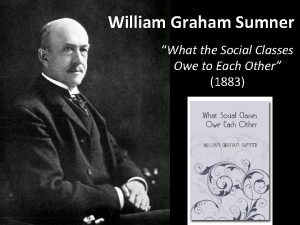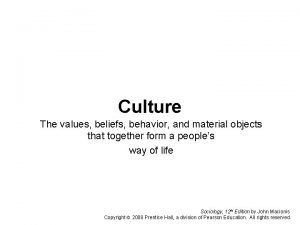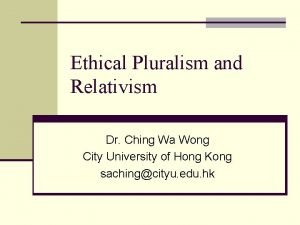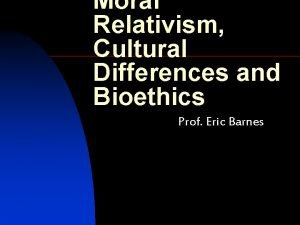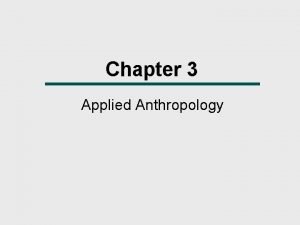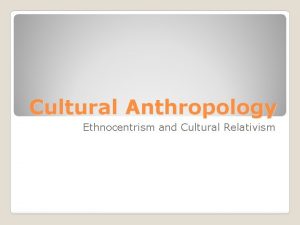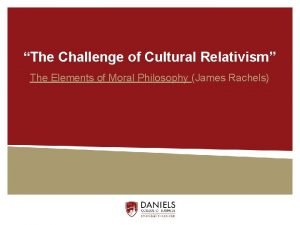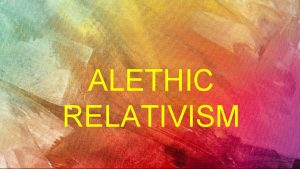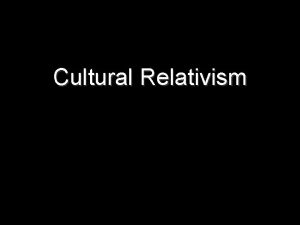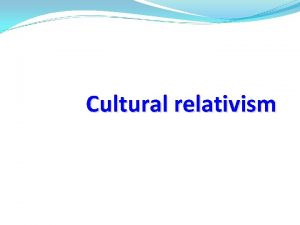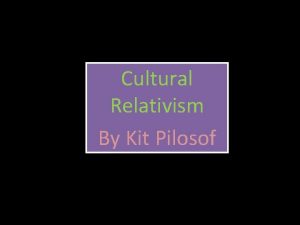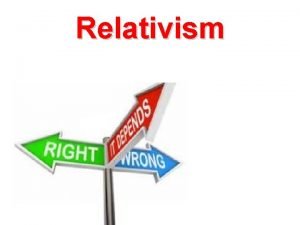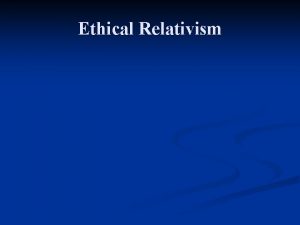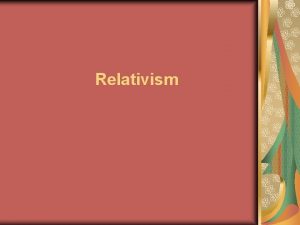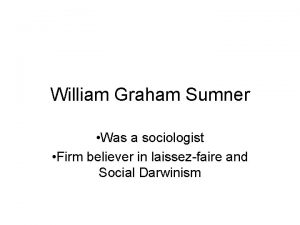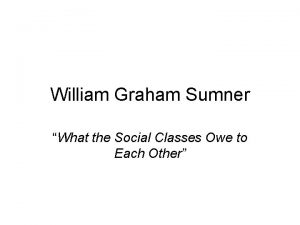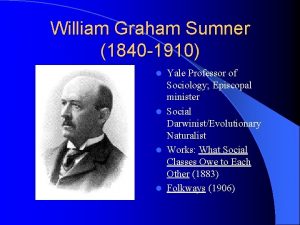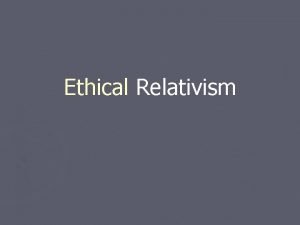Relativism Cultural Relativism William Graham Sumner Account of














- Slides: 14

Relativism

“Cultural Relativism” William Graham Sumner Account of the origin of the notions of “true” and “right” l Development of folkways from true and right. l Movement from folkways to mores. l Implications for morality l

Origin of “true” and “right” Truth is tied to the utility of a course of action l Instrumental Rationality l The term “right” applies to the evaluation or endorsement of a particular “device” or way of doing things. l

Folkways as the right ways l Folkways gain acceptance (are deemed right) because of their instrumental rationality. l Right=traditions l Wrong=taboos l Traditions are not subject to verification by experience.

Examples of folkways World philosophy l Life policy l Rights l Morality l

Ethnocentrism: the view that one’s own group is the center of everything, and all others are scaled and rated with reference to it. l Each group believes its way of doing things, its folkways, are the only right ways of doing things. l

From folkways to mores Mores: the development of the elements of truth and right into doctrines of welfare. l Mores are capable of producing inferences l Mores can themselves develop into new forms. l Mores tell us what ought to be the case, that is, mores often manifest themselves in the social codes of a society. l

General Features of Cultural Relativism l l l Different societies have different moral codes. There is no objective standard that can be used to judge one societal code better than another. The moral code of our own society has no special status; it is merely one among many. There is no “universal truth” in ethics. The moral code of a society determines what is right within that society. It is mere arrogance for us to try to judge the conduct of other peoples.

Cultural Difference Argument 1. Different cultures have different moral codes (C 1 has code X, and C 2 has code Y). l 2. Therefore, there is no objective “truth” in morality. Right and wrong are only matters of opinion. l

Problems with the Cultural Difference Argument It does not follow from the fact that individuals believe X, that X is in fact the case. l There may be objective truth in morality, even if individuals are not aware of it. l

Consequences of Cultural Relativism We could no longer say that the customs of other societies are morally inferior to our own. l We could decide all questions of right and wrong by appealing to current societal practices. l Problem of moral progress. l

Are Cultures Really that Different? Preservation of the young. l Rules prohibiting the arbitrary taking of a life. l Rules of discourse. l

Judging Cultures (Objective Standards) l How well do current practices meet the needs and/or values of a society. l Is the welfare of the individuals in a society better served by a different moral code.

Valuable Insights of Cultural Relativism l Different practices ≠ moral principles between cultures. l Moral criticisms vs. Aesthetic criticisms.
 Graham sumner roman
Graham sumner roman William graham sumner in group out group
William graham sumner in group out group William graham sumner what social classes owe to each other
William graham sumner what social classes owe to each other 3 types of accounts
3 types of accounts Spoken poetry about cultural relativism
Spoken poetry about cultural relativism Material culture examples
Material culture examples Ethnocentrism vs cultural relativism
Ethnocentrism vs cultural relativism Ethical pluralism
Ethical pluralism Example of cultural relativism
Example of cultural relativism Cultural relativism
Cultural relativism Cultural relativism tends to foster
Cultural relativism tends to foster Site:slidetodoc.com
Site:slidetodoc.com What are the example of ethnocentrism
What are the example of ethnocentrism Cultural relativism ap human geography
Cultural relativism ap human geography Ethical relativism
Ethical relativism


